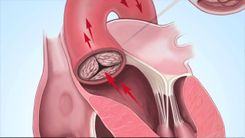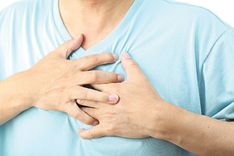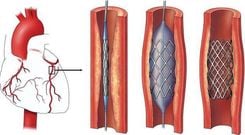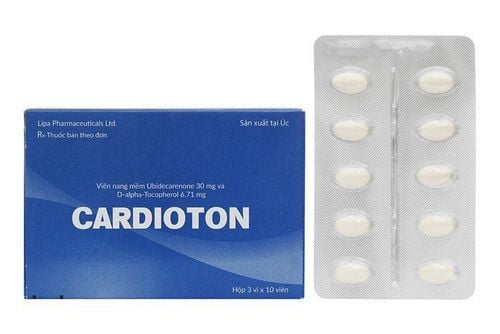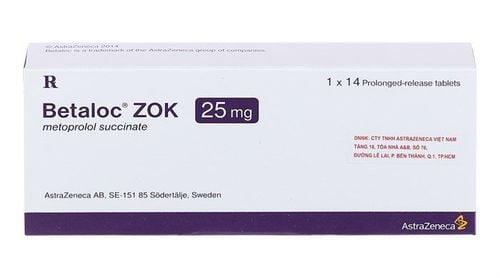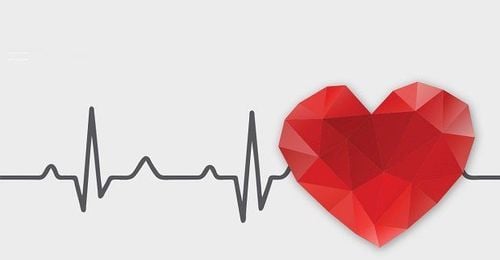This article has been consulted by Interventional Cardiologists from the Department of Outpatient and Internal Medicine at Vinmec Hai Phong International General Hospital.
Air travel is a popular type of transportation, but not everyone is suitable for flying. Although airplanes are equipped with medical supplies and emergency equipment to handle health emergencies like shortness of breath, chest pain, heart attack, or fainting due to the body's inability to adapt to changes in altitude, there are limitations to these preparations.
1. Changes in the body's circulatory system during flight
Air temperature decreases, oxygen levels drop, and atmospheric pressure falls with increasing altitude. When an airplane reaches an altitude of 2000 meters or more, the body may experience vascular reactions such as dilation of cerebral blood vessels, constriction of visceral arteries, and an increased heart rate to ensure sufficient blood supply and oxygen to the brain and other organs.
However, not everyone experiences these reactions. In fact, they are uncommon. Conversely, during takeoff and landing, the changes in movement and altitude can put stress on passengers. This can be a problem for individuals with overstimulated nervous systems.
To ease the effects of these factors, airplanes are equipped with pressurization systems to help passengers adapt to changes in temperature, atmosphere, and oxygen levels. However, these systems are only for temporary support. Therefore, before flying, it's important to consider your health and consult with a doctor, especially if you have cardiovascular conditions.
2. Is it safe for me to fly If I have coronary stent placement?
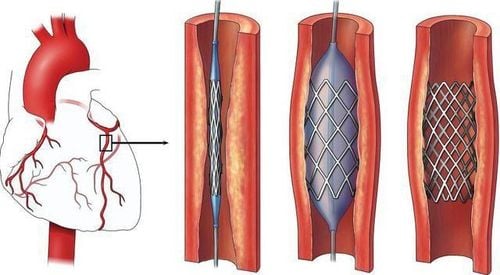
In modern days, all airplanes are equipped with the necessary machinery and equipment to support passenger health during flights. However, this does not mean that everyone can be able to fly.
Research data shows that the rate of heart attacks or cardiovascular events on airplanes accounts for approximately 10-20% of total health-related incidents.
Individuals who should avoid flying include:
- Patients who have had a heart attack and have been discharged from the hospital within the past two weeks.
- Patients who have had a stent placement or coronary angioplasty and have been discharged from the hospital within the past two weeks.
- Patients who have undergone coronary artery bypass graft surgery and have been discharged from the hospital within the past three weeks.
- Individuals with a history of unstable angina, chest pain even at rest, and chest pain that often occurs suddenly without warning signs.
- Patients with severe heart failure that is difficult to control.
- Patients with severe arrhythmias, especially uncontrolled ventricular and supraventricular arrhythmias.
- Patients with respiratory problems who require supplemental oxygen.
Although airplane cabins are designed with equipment to provide adequate oxygen, the oxygen level does not reach the same level as at sea level, and it can still cause a decrease in blood oxygen levels. Even with all the preparations made during a flight, unexpected health emergencies can still occur, which may be beyond the control of both the flight attendants and the passengers. In an emergency situation, it is essential to remain calm and avoid panic, as this can worsen the situation and affect other passengers on the flight."

3. Solutions to Minimize the Risks for Cardiovascular Patients
To minimize the risk of health emergency situations, especially for cardiovascular patients, the following precautions should be taken:
- Maintain a healthy diet before and during the flight.
- Avoid high altitudes above 1500 meters, and extremely hot or cold regions if you have a cardiovascular condition. Consult your doctor before traveling.
- Avoid highland travel for 6 months after heart surgery or a previous heart attack.
- Avoid heavy exercise immediately after reaching a high altitude. Allow time to acclimate to the rarefied air, usually 1-2 days. Stretching can improve circulation and reduce the risk of blood clots.
- Avoid stimulants like alcohol, tobacco, sleeping pills, or nerve-blocking painkillers.
- Notify flight attendants immediately if you experience fatigue or shortness of breath.
- Carry all previous medical records, prescriptions, and treatment information when flying.
- Unlike ground transportation, airplanes may not have immediate access to medical facilities. Therefore, it is crucial to maintain good health before flying, especially for cardiovascular and respiratory patients.
Vinmec Hospital has successfully performed coronary stent placement procedures for many patients. After recovery, patients can generally fly if they follow their doctor's instructions.
The coronary stent placement procedure at Vinmec Hai Phong International General Hospital has a success rate of 98%. The procedure is performed by a team of specialized interventional cardiologists using advanced cath lab equipment in a sterile and quiet environment, helping patients recover quickly and minimizing post-operative risks.
To arrange an appointment, please call 02257309888 or make your reservation directly. You may also download the MyVinmec app to schedule appointments faster and manage your reservations more conveniently.
